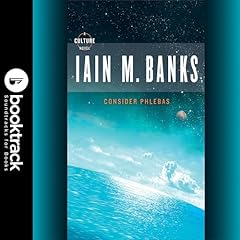
Losing the Nobel Prize
A Story of Cosmology, Ambition, and the Perils of Science's Highest Honor
No se pudo agregar al carrito
Add to Cart failed.
Error al Agregar a Lista de Deseos.
Error al eliminar de la lista de deseos.
Error al añadir a tu biblioteca
Error al seguir el podcast
Error al dejar de seguir el podcast
 Exclusivo para miembros Prime: ¿Nuevo en Audible? Obtén 2 audiolibros gratis con tu prueba.
Exclusivo para miembros Prime: ¿Nuevo en Audible? Obtén 2 audiolibros gratis con tu prueba.Compra ahora por $21.24
-
Narrado por:
-
Stephen R. Thorne
-
De:
-
Brian Keating
What would it have been like to be an eyewitness to the Big Bang? In 2014, astronomers wielding BICEP2, the most powerful cosmology telescope ever made, revealed that they'd glimpsed the spark that ignited the Big Bang. Millions around the world tuned in to the announcement broadcast live from Harvard University, immediately igniting rumors of an imminent Nobel Prize. But had these cosmologists truly read the cosmic prologue or, swept up in Nobel dreams, had they been deceived by a galactic mirage?
In Losing the Nobel Prize, cosmologist and inventor of the BICEP (Background Imaging of Cosmic Extragalactic Polarization) experiment Brian Keating tells the inside story of BICEP2's mesmerizing discovery and the scientific drama that ensued. In an adventure story that spans the globe from Rhode Island to the South Pole, from California to Chile, Keating takes us on a personal journey of revelation and discovery, bringing to vivid life the highly competitive, take-no-prisoners, publish-or-perish world of modern science. Along the way, he provocatively argues that the Nobel Prize, instead of advancing scientific progress, may actually hamper it, encouraging speed and greed while punishing collaboration and bold innovation.
©2018 Brian Keating (P)2018 TantorLos oyentes también disfrutaron:




















Las personas que vieron esto también vieron:

Awesome science for a lay audience
Se ha producido un error. Vuelve a intentarlo dentro de unos minutos.
Brian Keating, Professor of Physics and Astronomy at UCSD takes us in a journey of discovery in Losing the Nobel Prize.
In September 2015 the LIGO team confirmed the existence of Gravitational Waves 100 years after a major prediction in Einstein’s famous General Theory of Relativity, E=mc2.
Unfortunately even after this massive accomplishment they still lost this monumental award winning a year later.
I know. No use to dwell on the past but I stand by him when he says “Dead men win no Nobels” because he is absolutely right, Science IS at stake.
The Nobel committee should rewrite their non conformist policies. Regardless of age, gender and posthumous awards need apply here. They should be awarded.
Although science isn’t about the recognition because the fruits of discovery are in themselves reaping good fruit; if the scientific community isn’t willing to recognize the men and women’s hard work for all the advancements in understanding how the universe works, how are we to inspire the future generations?
It’s imperative we give them their due.
This was such a huge discovery, and so it has been the ones that came before it.
This is not an angry review I promise but It’s a rather grateful one.
That we have all been given access to what went through the mind of these geniuses in the LIGO Labs although some will contend that it was the lasers instead than the men and women behind these experiments, is but a gift.
Every single Laureate, every single scientist in the world working in the field in outreach after years and years of research confirming those theories; my stars, 100 years. If Einstein were alive today; I wonder what would he have to say after this massive breakthrough.
We can only hope funding is acquired for future research and other projects should be pursued. Just 2 labs simply aren’t enough.
This isn’t a book you want to miss, and it’s one for the ages too. You want to buy one for your friends if they love science in general, those who have no understanding in the field will understand easily the subject and those that do understand it will love it even more so.
An in-depth view at what goes through the minds of men and women who walk the long and narrow passage to discovery which can be both fortuitous and lonely sometimes; all the way from Antarctica to the farthest reaches of the space where black holes merge in which the universe can help you confirm what you so long for, and humanity can take everything from you because it is what we usually do.
But that never stopped us before and our determination is far greater than anything.
We are explorers, wanderers and we shall continue on to the stars for that in itself is the true reward.
What are you waiting for? You won’t be able to put it down. Also, did I mention the chapter names are bomb?! An homage to pop culture. Bravo Professor. BRAVO! I got a kick every. Single. Time.
Now, if LIGO could please get more funding to upgrade the interferometers and see what neutron stars and pulsars are doing in deep space (if I’m understanding this correctly) and perhaps in a not so distant future it could also be sent to Space would be great. It works. It’s time.
Thank you Professor for such a wonderful read and listen. I’ll liaten to this again and again. Loved it!
The breakthrough, and a roller coaster ride...
Se ha producido un error. Vuelve a intentarlo dentro de unos minutos.
Missing part in chapter 1
Se ha producido un error. Vuelve a intentarlo dentro de unos minutos.
My review
Se ha producido un error. Vuelve a intentarlo dentro de unos minutos.
Focusing on What is Important
Se ha producido un error. Vuelve a intentarlo dentro de unos minutos.


